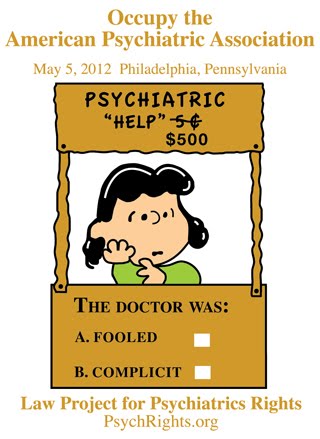Good afternoon.
I'm not a physician nor a medical student but as a recent psychology grad, I even spend my free time looking up articles on google scholar. I am a very curious person, what can I say. So came across a few papers that suggested psychiatrists are the least religious of all specialties. I contacted the lead author of a recent paper and he refused to speculate why that might be. Amongst ethnic groups, apparently a disproportionate number of psychiatrist happen to be Jewish but those are mostly atheists. In other words, Jewish by ethnicity not religion. So I wonder....
Anyhow, anybody care to speculate why this may be? Is it that psychiatry a meaning-making system that competes with (potentially replaces) religion for the physicians in that field? Or is it because the physicians are exposed to so much suffering and pain that it's simply impossible to believe in an intelligent and compassionate God? Or my third speculation, that psychiatrists do not deal with medical issues as much as they deal with problems of living. So they spend less time examining, like a surgeon would, the beautiful and complex insides of the human body. And so do not wonder as much, who or what made this beautiful/complex organism.
I know, I'm oversimplifying. I apologize if my observations and speculations are limited. But they're speculations, nothing more. Fact of the matter is that even other physicians are not THAT religious. So we're talking relatively small differences. In any case, appreciate your opinions. Regards.
I'm not a physician nor a medical student but as a recent psychology grad, I even spend my free time looking up articles on google scholar. I am a very curious person, what can I say. So came across a few papers that suggested psychiatrists are the least religious of all specialties. I contacted the lead author of a recent paper and he refused to speculate why that might be. Amongst ethnic groups, apparently a disproportionate number of psychiatrist happen to be Jewish but those are mostly atheists. In other words, Jewish by ethnicity not religion. So I wonder....
Anyhow, anybody care to speculate why this may be? Is it that psychiatry a meaning-making system that competes with (potentially replaces) religion for the physicians in that field? Or is it because the physicians are exposed to so much suffering and pain that it's simply impossible to believe in an intelligent and compassionate God? Or my third speculation, that psychiatrists do not deal with medical issues as much as they deal with problems of living. So they spend less time examining, like a surgeon would, the beautiful and complex insides of the human body. And so do not wonder as much, who or what made this beautiful/complex organism.
I know, I'm oversimplifying. I apologize if my observations and speculations are limited. But they're speculations, nothing more. Fact of the matter is that even other physicians are not THAT religious. So we're talking relatively small differences. In any case, appreciate your opinions. Regards.


